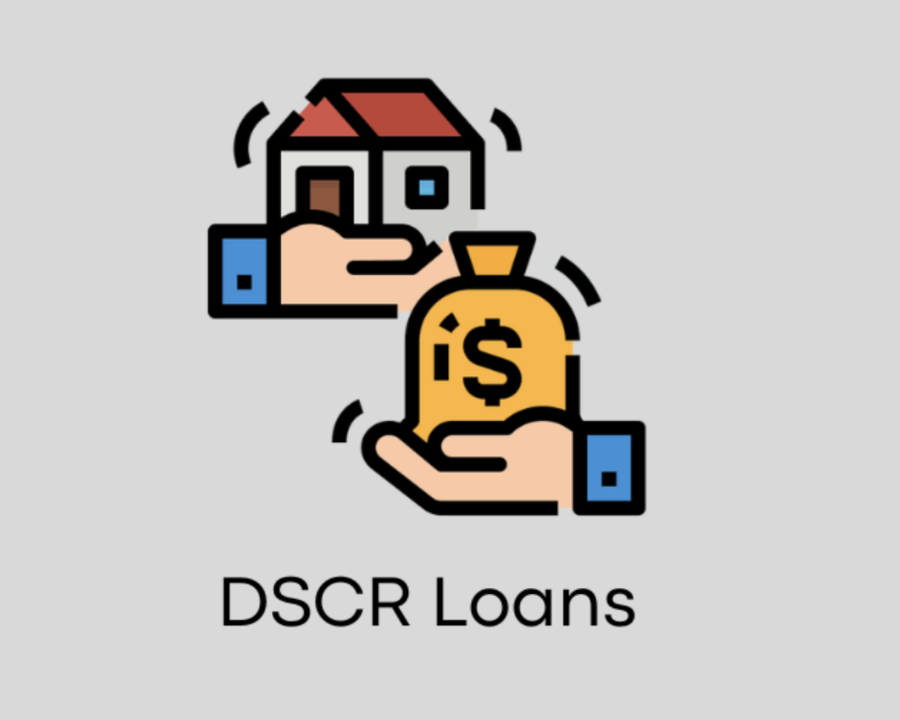When it comes to financing commercial real estate investments, finding the right loan can make all the difference. Debt Service Coverage Ratio (DSCR) loans have become increasingly popular among real estate investors and business owners. These loans are particularly attractive for those with income-generating properties, as they focus on the property’s ability to repay the loan rather than the borrower’s financial situation.
In this detailed guide, we’ll explore the pros and cons of DSCR loans, providing insights into how they work, who can benefit from them, and the potential drawbacks you should consider.
1. What Is a DSCR Loan?
A Debt Service Coverage Ratio (DSCR) loan is a type of commercial real estate financing where the focus is on the property’s income rather than the borrower’s financial details. The DSCR measures a property’s ability to cover its debt obligations using its income, which can be a significant advantage for those with complex or variable personal finances.
Definition and Calculation
The Debt Service Coverage Ratio is a financial metric used to determine how easily a property can cover its debt payments. This formula is used to calculate it:
DSCR=Net Operating Income (NOI)Total Debt Payments\text{DSCR} = \frac{\text{Net Operating Income (NOI)}}{\text{Total Debt Payments}}DSCR=Total Debt PaymentsNet Operating Income (NOI)
For instance, if a property generates an annual Net Operating Income of $150,000 and has total debt payments of $100,000, the DSCR would be 1.5. This means the property generates 50% more income than is needed to cover its debt payments.
Importance in Commercial Lending
Lenders use the DSCR to assess the risk associated with a loan. A higher DSCR indicates a property is more likely to generate sufficient income to cover its debt payments, making it a lower-risk investment for lenders. This is especially important in commercial real estate, where the property’s financial performance is a critical factor in loan approval.
How DSCR Loans Differ from Traditional Loans
Traditional loans often rely heavily on the borrower’s personal credit score, income, and overall financial health. In contrast, DSCR loans focus on the property’s financial performance. This shift in focus can make DSCR loans an appealing option for investors who might struggle with traditional lending requirements due to personal financial challenges.
2. Pros of DSCR Loans
DSCR loans offer several advantages that can be particularly beneficial for real estate investors and business owners. Let’s delve into the key benefits:
1. Flexible Qualification Criteria
One of the most significant advantages of DSCR loans is their flexible qualification criteria. Unlike traditional loans that emphasize personal credit scores and income, DSCR loans focus on the property’s income. This flexibility allows borrowers with less-than-perfect personal financials to still secure financing, as long as the property can generate enough income to cover the debt payments.
2. No Requirement for Personal Income Documentation
DSCR loans often do not require personal income documentation. This is ideal for self-employed individuals, freelancers, or those with variable income sources. Since the loan approval is based on the property’s financial performance, borrowers do not need to provide extensive documentation of their income, simplifying the application process.
3. Higher Loan Amounts
Due to the focus on property income, DSCR loans can offer higher loan amounts compared to traditional loans. This is particularly advantageous for investors looking to acquire high-value properties or expand their portfolios. The loan amount is determined based on the property’s ability to generate income, which can lead to larger financing opportunities.
4. Streamlined Approval Process
The approval process for DSCR loans is often quicker and more streamlined. Since the primary focus is on the property’s income rather than the borrower’s personal financials, the application process can be faster, especially for experienced investors who are familiar with the requirements.
5. Ideal for Portfolio Expansion
For real estate investors looking to grow their portfolios, DSCR loans offer scalability. Investors can leverage these loans to acquire multiple properties, as long as each property meets the DSCR requirements. This flexibility allows investors to expand their portfolios without being limited by personal financial constraints.
3. Cons of DSCR Loans
While DSCR loans offer many benefits, they also come with certain drawbacks. Understanding these potential downsides is crucial for making an informed decision.
1. Higher Interest Rates
Interest rates on DSCR loans are frequently higher than those on conventional loans. This is due to the perceived risk associated with focusing on property income rather than the borrower’s financials. Higher interest rates can increase the overall cost of the loan, impacting the profitability of the investment.
2. Larger Down Payment Requirements
Another consideration is the down payment. DSCR loans typically require a larger down payment, often ranging from 20% to 35% of the property’s value. This higher upfront cost can be a barrier for some investors who may not have access to substantial amounts of capital.
3. Detailed Property Income Documentation
While personal income documentation may not be required, DSCR loans necessitate detailed documentation of the property’s income. Lenders will require information such as rent rolls, profit and loss statements, and tax returns. This documentation can be extensive and may be challenging for new investors or those unfamiliar with the process.
4. Market Volatility Risks
DSCR loans are sensitive to market conditions. If rental rates decline, occupancy rates drop, or the property’s financial performance worsens, the DSCR can fall below the required threshold. This market volatility can affect the borrower’s ability to maintain the loan and potentially lead to financial strain.
5. Potential Prepayment Penalties
Some DSCR loans include prepayment penalties, which can impact borrowers who wish to pay off their loans early. These penalties can add extra costs and reduce the flexibility of managing the loan, especially if the borrower decides to refinance or sell the property.
4. Case Study: Successful Utilization of a DSCR Loan
To illustrate how DSCR loans can be effectively used, let’s look at a real-world case study:
Case Study: Scaling a Real Estate Portfolio
Scenario
John, a seasoned real estate investor, had a growing portfolio of residential properties. He identified an opportunity to acquire a commercial retail center that promised substantial rental income. However, the purchase price was significantly higher than his previous investments, and traditional loan options were not feasible due to the scale of the deal.
Solution
John opted for a DSCR loan. The property’s strong income potential provided a favorable DSCR of 1.4, meeting the lender’s criteria. John was able to secure a higher loan amount, which enabled him to purchase the retail center without having to rely on his personal financials.
Outcome
With the DSCR loan, John expanded his portfolio and diversified his investments into commercial real estate. The retail center’s income covered the loan payments comfortably, and the property’s success added significant value to John’s overall investment strategy.
5. FAQs About DSCR Loans
What is a good DSCR ratio for securing a loan?
Most lenders require a DSCR of at least 1.2 to 1.25. This means the property should generate 20-25% more income than needed to cover the debt payments.
Can DSCR loans be used for residential properties?
DSCR loans are primarily designed for commercial properties and income-generating assets. Residential properties, especially owner-occupied ones, typically do not qualify for DSCR loans.
What is the typical interest rate for a DSCR loan?
DSCR loans generally have higher interest rates compared to traditional loans. The exact rate will depend on factors such as the property’s DSCR, market conditions, and the lender’s terms.
Are there any special requirements for self-employed borrowers?
Self-employed borrowers benefit from the DSCR loan’s focus on property income rather than personal financials. However, they still need to provide detailed documentation of the property’s financial performance.
How do lenders verify DSCR ratios?
Lenders verify DSCR ratios by reviewing the property’s financial documents, including rent rolls, profit and loss statements, and tax returns. They use this information to calculate the DSCR and assess the loan application.
6. Conclusion: Assessing DSCR Loans for Your Investment Needs
DSCR loans offer a range of benefits, particularly for investors and business owners with income-generating properties. Their flexibility in qualification, higher loan amounts, and streamlined approval process make them an attractive option for many. However, the higher interest rates, larger down payment requirements, and potential market volatility risks are important considerations.
If you’re evaluating whether a DSCR loan is the right fit for your investment strategy, weigh the pros and cons carefully. Understanding the specifics of how these loans work and their impact on your financial goals will help you make an informed decision.
7. Contact Us for Expert Guidance on DSCR Loans
At Commercial Lending USA, we specialize in helping investors and business owners secure DSCR loans tailored to their needs. Our team of experts is here to guide you through the process and ensure you get the best financing solution for your commercial property investments.
Contact Us Today
Website: https://commerciallendingusa.com/
Phone: 1-800-123-4567
Email: info@commerciallendingusa.com
Whether you’re looking to expand your real estate portfolio or secure financing for a commercial property, we’re here to help you achieve your financial goals with a DSCR loan.




More Stories
Financial Planning for Kiwi Entrepreneurs: Long-Term Success Strategies
Financial Compliance Consulting Guide
Maximum & Minimum Tenure for a Rs. 5 Lakh Personal Loan